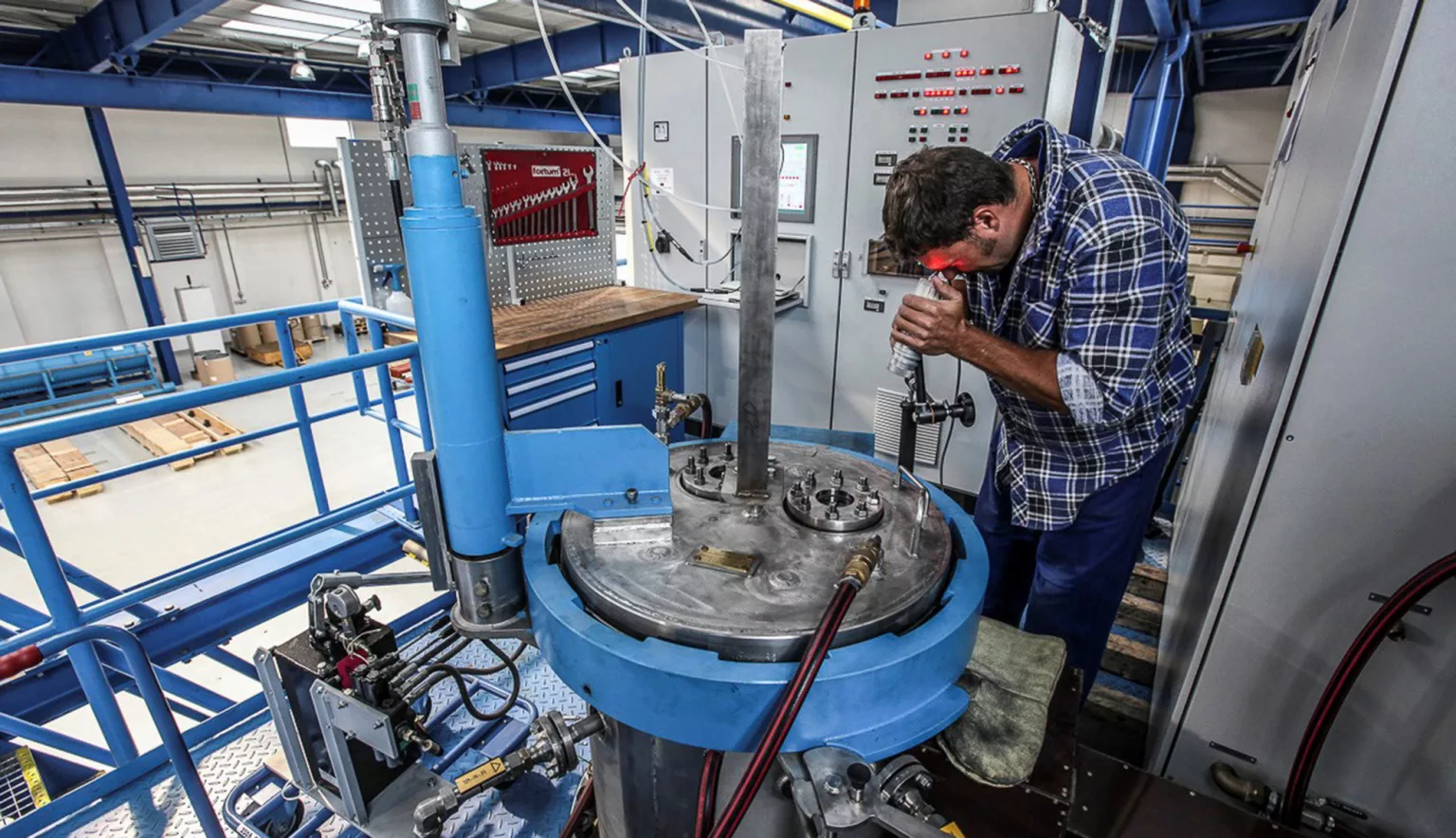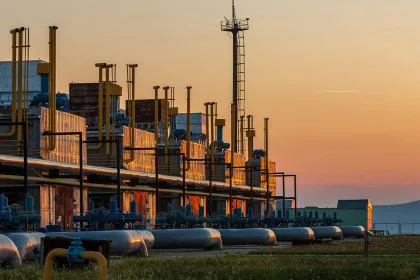Safina has carved its own niche for maximising the value of precious and non-ferrous metal waste, its operations in the Czech Republic driven by innovation, sustainability and employee appreciation.
KEEPING METALS PRECIOUS
In today’s world, sustainability is no longer a buzzword.
Now widely accepted across business operating in almost all industries as an imperative, both environmentally and, increasingly from a financial standpoint, the concept of doing more with less has never been more important.
Finding innovative ways of using what has been previously regarded as waste is one such way in which industrial companies are working towards their sustainability ambitions.
“In our business, waste material has another meaning,” comments Vadim Kartavtsev, CEO of Safina, a Czech enterprise specialising in the processing and manufacture of products from precious and non-ferrous metals.
“In our case, waste material is one of our sources. In the precious metals business, metal management is a base and each gram of waste material goes to recycling and refining for the next cycle of production. Many who visit our production plant are surprised by the clearness of working spaces, and we explain to them that every day our employees clean tables and machines and collect even the smallest piece of precious metal.
“In short, we do not have waste – everything is raw material to us.”
Safina took its name as a joint stock company in 1992, but its origins can be traced all the way back to the formation of G.H. Scheidsche Affinerie in Vienna in 1860.
It has a long tradition in the complex processing and production of products from precious and non-ferrous metals, its goods sold to large and small clients in 44 countries around the world and through five stores in the Czech Republic, stores which are also used to buy scrap.
The beating heart of the company is itshub in Vestec, near Prague, home to its production site, R&D activities and sales and management operations. Many of the company’s 180 employees work here across several production lines, producing a range of products such as base metal targets, chemicals, solders and brazing parts, platinum and dental alloys.
It is a complex enterprise, and when asked what stands Safina apart, Kartavtsev cites a range of factors.
“Asides from our flexibility and hard focus to meet customer needs?” he begins. “For me, it is our company ethics, responsibility, and care for our employees – we have a very strong sense of loyalty in the company and a mutual focus to drive sustainable growth.
“Next to that is responsible waste management, cooperation with local and international universities, and being part of new product development within industry 4.0 and 3D printing, to list a couple of examples.
“Safina is also a strong partner to big international companies in different clusters for new product development, so we are trying to help build the future as well.”
CONTINUOUS MODERNISATION
In terms of Safina’s own future, Kartavtsev outlines many ways in which the company continues to modernise its operations, both in the way of plant equipment and process as well as research and development.
The most significant investment made over the past two years has been in its refinery, which enables greater economies of scale, and metal powder production capabilities.
Kartavtsev adds: “Safina invested huge amounts to be able to supply customised powders, as well as to be able to scale the production of a product after it is qualified.
“We tend to concentrate on products with higher added value, which is the only way for us to grow a sustainable business. Of course, we have a standard product we produce on daily basis, and the level of quality reaches the top requirements of the market. There are not many competitors in the world that can achieve the same results.
“And for some of our products, there are no competitors in the world!”
As well as investing in product diversification, Safina has also been an eager adopter of lean principles.
Areas such as stock and material turnover are routinely monitored by managers who sit in daily meetings, while product flows and payment conditions have been adjusted so the company can provide just-in-time deliveries for customers.
Quality control has been bolstered with the addition of two new managers, while the process of producing atomised powders has been revised in order to keep up with growing demand. Here, Safina has been able to increase output by 400 percent with the same number of operators working the line.
In the area of R&D, Kartavtsev highlights the importance of staying on trend.
“R&D is a must and continuous process for Safina’s people,” he says. “Precious metals have an irreplaceable role in today’s world, and we make sure we follow that market. As of today, with our partners, we mostly concentrate on different additive manufacturing processes and powders being used, and also spraying of functional layers.
“Other examples of where we place our attention include special, high homogenous rotary targets, grain stabilised platinum and many other projects under strict NDAs. We also develop new chemical compounds for our European customers.”
POWERED BY PEOPLE
A company clearly looking ahead to the future, the fact its roots trace back 150 years should not be overlooked
Indeed, Safina would not be where it is today without decades and decades of invaluable knowledge transfer between the industry pioneers who have been at the company during this time.
For Kartavtsev, the sustainable future of the firm hinges on people.
“In our field, where only a few companies produce what we produce, we have to take care of our people and make sure they are happy, to ensure their knowhow stays with Safina,” he explains.
“We have employees that started with us as a first job and have spent their whole working life with us. We are very proud of it and we want to keep this for the future as well.
“We try to make the working environment a happy one – it is not only about salary in Safina, though the company does pay competitively. Rather, it is about what we do and what we build, and how our customers are happy with what we do.”
Constant engagement with management is another way in which employees feel closer to the business.
Kartavtsev continues: “There is very high level of trust and that joins people together. In today’s changing environment and especially in Czech Republic, which has the lowest unemployment rate in EU since its existence, people have the priority.
“We want our people to be part of our organisation, so communicate our company strategy to them – our goals, plans, and investments.”
And this is where the CEO concludes the conversation.
Optimistic about the direction of Safina and the role it can play in maximising the value of waste, Kartavtsev outlines a future defined by investment in people, product and process.
He says: “A big priority for us is increasing our product portfolio in niche markets, not only within Europe, but worldwide and new markets. High added value products are the easiest to export, and we are already quite strong in that.
“And what I already mentioned – our objective is to work with our people, so we keep growing the knowhow and knowledge within Safina.”































